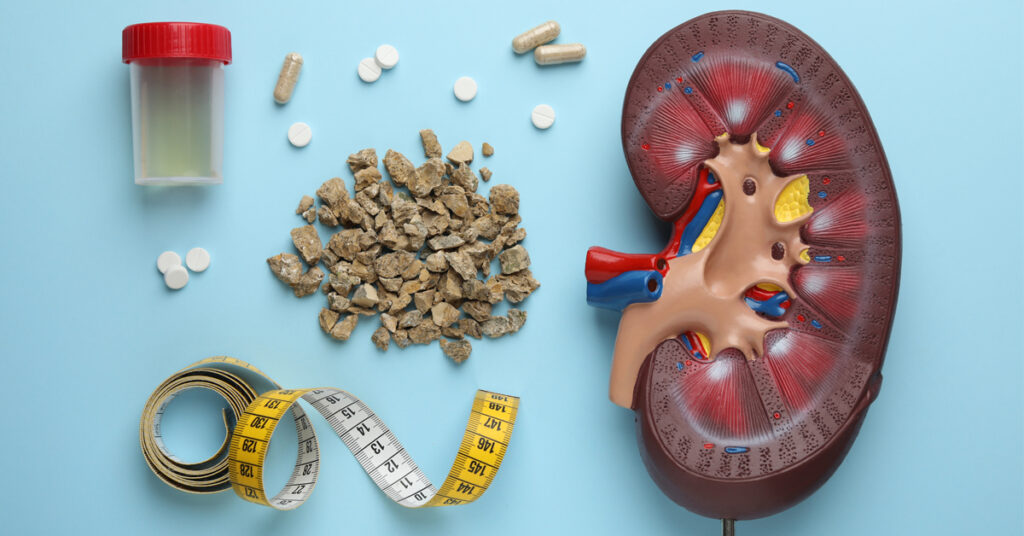Passing a kidney stone can be a challenging experience, and understanding the timeframe and factors involved can help manage expectations and guide treatment decisions. In this article, we’ll explore how long it typically takes to pass a kidney stone, what factors influence this duration, and what you can do to ease the process.
1. Typical Timeframe for Passing a Kidney Stone
On average, most small kidney stones pass out of the body within 2 to 6 weeks from the onset of symptoms. This duration can vary depending on several factors, including the size and location of the stone, as well as the individual’s overall health.
Here’s a breakdown of the typical timeframes:
- Small Stones (Less than 5 mm): Stones of this size often pass on their own within 1 to 2 weeks. Many patients experience relief within this relatively short period.
- Medium Stones (5–10 mm): Stones of this size may take 2 to 4 weeks to pass. Medical interventions might be considered if the stone does not pass within this timeframe.
- Large Stones (Greater than 10 mm): Larger stones might take several weeks to several months to pass, and often require medical treatment to aid in their removal.
2. Factors Influencing the Passage of a Kidney Stone
Several factors can affect how long it takes to pass a kidney stone. Understanding these factors can provide insights into what might be affecting the duration of your experience:
- Stone Size: Generally, smaller stones pass more quickly than larger ones. Stones smaller than 4 mm have a high chance of passing spontaneously, while larger stones may require medical intervention.
- Stone Location: Stones located in the ureter (the tube connecting the kidney to the bladder) may take longer to pass than those in the kidney or bladder. If a stone is stuck in the ureter, it may cause more pain and take longer to pass.
- Stone Composition: The chemical makeup of the stone can impact how easily it breaks up and passes. For example, calcium oxalate stones might behave differently than uric acid stones.
- Hydration Levels: Adequate hydration can help flush out the stones. Drinking plenty of fluids increases urine flow, which can assist in moving the stone through the urinary tract.
- Body Size and Health: Individual health conditions and physical characteristics can also affect the passage of kidney stones. Generally, people with good hydration and those who are in good overall health may experience a quicker passage of stones.
- Pain Management and Medication: Medications for pain and to help pass the stone can influence how long it takes to pass. Alpha-blockers, for example, may help relax the ureter and speed up stone passage.
3. Symptoms and When to Seek Medical Attention
If you’re experiencing kidney stones, it’s important to be aware of the symptoms and when to seek medical help:
- Mild to Moderate Symptoms: Symptoms may include back pain, discomfort during urination, and hematuria (blood in urine). If symptoms are manageable and the stone is small, the process might be ongoing.
- Severe Symptoms: Intense pain, fever, chills, or difficulty urinating may indicate a complication, such as an infection or obstruction, and you should seek medical attention immediately.
- Failure to Pass: If a stone hasn’t passed within a few weeks, or if symptoms worsen, it’s important to consult a healthcare professional to explore other treatment options.
4. What You Can Do to Help Pass a Kidney Stone
Here are some practical steps you can take to facilitate the passage of a kidney stone:
- Increase Fluid Intake: Aim to drink 8–12 glasses of water a day. Staying hydrated helps dilute the urine and can make it easier for the stone to pass.
- Pain Management: Over-the-counter pain relievers like ibuprofen or acetaminophen can help manage pain. For severe pain, prescription medications might be necessary.
- Follow Medical Advice: If prescribed medications like alpha-blockers or potassium citrate, be sure to take them as directed to help pass the stone.
- Strain Your Urine: Using a strainer when you urinate can help you catch the stone for analysis, which can guide future prevention strategies.
- Adopt a Kidney Stone-Friendly Diet: Depending on the type of stone, dietary adjustments might be recommended to prevent future stones. This could include reducing salt, oxalate, or purine intake.
5. Medical Interventions for Persistent Stones
For stones that do not pass on their own, several medical procedures can help:
- Extracorporeal Shock Wave Lithotripsy (ESWL): This non-invasive procedure uses shock waves to break the stone into smaller pieces that can pass more easily.
- Ureteroscopy: A small scope is inserted into the urinary tract to remove or break up the stone.
- Percutaneous Nephrolithotomy (PCNL): A surgical procedure for larger stones, involving a small incision in the back to remove the stone.
- Surgery: In rare cases, open surgery might be required for very large or complex stones.
Conclusion
The time it takes to pass a kidney stone treatment can vary widely depending on a range of factors, from the size and location of the stone to your overall health and hydration levels. While many stones pass on their own within a few weeks, larger stones or those causing complications may require medical intervention.
If you’re dealing with kidney stones, staying hydrated, managing pain, and following your doctor’s advice can all help in passing the stone more efficiently. For stones that don’t pass on their own, a variety of treatment options are available to help you achieve relief.
If you have concerns about your kidney stone or its treatment, be sure to consult with a healthcare provider to explore the best approach for your specific situation.






Comments